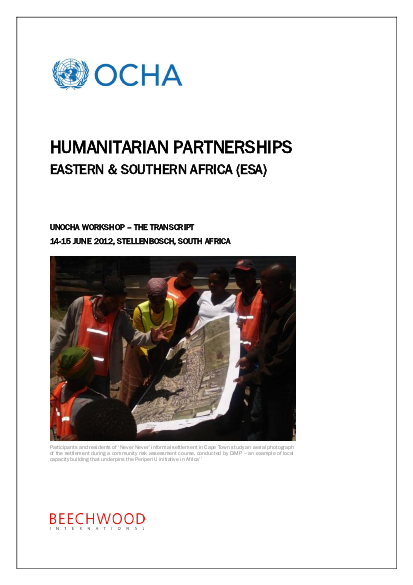
On 14-15 June, in Stellenbosch, South Africa, OCHA’s Policy Development and Studies Branch and its Regional Office for Southern Africa (ROSA), in conjunction with Stellenbosch University, convened a two-day workshop that brought together over 40 individuals from 11 countries,1 primarily from eastern and southern Africa (ESA). Delegates included academic institutions from the PeriPeri University disaster risk reduction (DRR) partnership2, regional organizations (SADC), National and religious NGOs and Red Cross Societies, as well as regional representatives of IFRC, WFP, UNICEF, IOM and USAID. The participants brought a diverse range of experience and expertise in the fields of disaster risk reduction and humanitarian response. The discussion focused on improving the effectiveness of humanitarian partnerships in light of the current and changing nature of humanitarian emergencies and response in the region. In order to maximise opportunities for individuals to interact with others from different backgrounds and experiences, brief presentations were combined in each of the sessions with facilitated small groups to stimulate and guide dialogue. As the discussion proceeded, people captured questions, comments and ideas anonymously, using a system of wirelessly connected netbooks called the TEAMWIN Collaborator. Each bullet point in the main body of this document is a direct input from participants, edited only for spelling. The facilitators helped to categorise the inputs into common themes in real time.